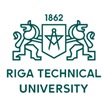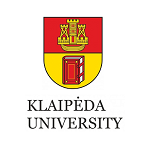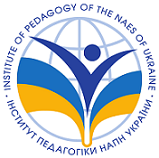METHOD FOR THE CONSTRUCTION OF STUDENTS’ SCIENTIFIC IDENTITY WITHIN ENGLISH FOR ACADEMIC PURPOSES: THE CASE OF INTERNATIONAL STUDENTS OF MASTER PROGRAMME “INFORMATION AND ELECTRICAL ENGINEERING”AT HOCHSCHULE WISMAR
Last modified: 05.04.2019
Abstract
Reaching the Goals of the 2030 Agenda for Sustainable Development is facilitated by science development. In order to strengthen scientific efforts in implementing the 2030 Agenda, the number of our modern society’s members who associate themselves with scientific community has to be increased. The research question is as following: What method promotes the construction of students’ scientific identity in language education within higher engineering education? The aim of the present research is to analyse the inter-connections between scientific identity and language education underpinning empirical analysis of use of biographical methods in English for Academic Purposes within Master programme “Information and Electrical Engineering” for International students at Hochschule Wismar. Research methods include theoretical and empirical methods. Theoretical methods comprise analysis of theoretical sources and theoretical modelling. The research methodology implies the study of the meaning of the key concepts of “scientific identity”, “language education” and “biographical method”. Moreover, the study demonstrates how the key concepts are related to higher engineering education. The empirical study was carried out at Hochschule Wismar in 2018. The data reveals students’ positive evaluation of use of biographical methods in English for Academic Purposes studies. The novel contribution of the paper is the newly formulated research question.
Keywords
References
Aase, L. (2006). Aims in the Teaching/Learning of Language(s) of Education (LE). Language Policy Division, Strasbourg 16-18 October 2006. Retrieved from: www.coe.int/t/dg4/linguistic/Source/Aase_aims_final_EN.doc.
Ahrens, A., & Zaščerinska, J. (2014). Students’ Attitude to Interdisciplinary Research. Proceedings of the International Scientifical Conference Society, Integration, Education. Volume I: Higher Education Institutions Pedagogy, School Pedagogy, Pre-School Pedagogy. May, 23rd-24th, 2014, pp. 13-23. – Rēzekne: Rēzeknes Augstskolas Izdevniecība.
Ahrens, A., Gruenwald, N., Bassus, O., Zaščerinska, J., & Melnikova, J. (2017). Master Programme “Information and Electrical Engineering” for International Students at Hochschule Wismar: Theoretical Framework. In: Claudiu Vasile Kifor, Norbert Gruenwald, Lucian Lobont (Eds), Conference Proceedings of 8th Balkan Region Conference on Engineering and Business Education (BRCEBE) and 10th International Conference on Engineering and Business Education (ICEBE) “Creating a mindset for growth and socio-economic development” 19 - 22 October 2017, Lucian Blaga University of Sibiu, Romania, pp. 175-182. Sibiu, Romania: Lucian Blaga University of Sibiu. ISSN 1843-6730. De Gruyter Online. DOI: https://doi.org/10.1515/cplbu-2017-0023.
Ahrens, A., Grünwald ,N., Bassus, O., Andreeva, N., Zaščerinska, J., & Melnikova J. (2018). Impact of Master Programme “Information and Electrical Engineering” for International Students at Hochschule Wismar on Regional Economics: Theoretical Modelling. In :В.М. Муров, д.т.н., профессор (отв. редактор); А.Г. Мнацаканян, д.э.н., профессор; Р.Ш. Ходжаев, д.э.н., профессор; В.В. Нордин, к.т.н., доцент. Scientific Printed Works of the 8th International Scientific Conference Perspectives of Economics of Kaliningrad Region and EU Development, June 22-24, 2017, pp. 6-9. Федеральное государственное бюджетное образовательное учреждение высшего профессионального образования ФГБОУ БПО "Калининградский государственный технический университет" / Kaliningrad State Technical University, Kaliningrad, Russian Federation. ISBN 978-5-94826-490-5. УДК 332.1(470.26)(06).
Arhipova, O. (2018). The Powerful People’s Biographies Analysis for Modern Leaders’ Identity Construction. Rural Environment. Education. Personality (REEP). Proceedings of the International Scientific Conference, Volume 11, pp. 42-52, 11th - 12th May 2018. Jelgava: Latvia University of Life Sciences and Technologies. Faculty of Engineering. Institute of Education and Home Economics. − 415 pages. ISBN 978-9984-48-285-9 ISSN 2255-808X. DOI: 10.22616/REEP.2018.001.
Brickhouse, N.W. (2001). Embodying science: A feminist perspective on learning. Journal of Research in Science Teaching, 38(3), 282–295.
Burgess, R. G. (1984). In the Field. An introduction to field research. London: George Allen & Unwin. 280 p.
Cohen, L., Manion, L., & Morrsion, K. (2003). Research Methods in Education. London and New York: Routledge/Falmer Taylor & Francis Group.
Crites, S., Jr. L., Fabrigar, L.R., & Petty, R.E. (1994). Measuring the affective and cognitive properties of attitudes: Conceptual and methodological issues. Personality and Social Psychology Bulletin (20) 1994, pp 619-634.
Flyvbjerg, B. (2006). Five Misunderstandings About Case-Study Research. Qualitative Inquiry,12(2), 219-245.
Geertz, C. (1973). The Interpretation of Cultures. London: Hutchinson. 476 p.
Gruenwald, N., Ahrens. A., Zaščerinska, J., Melnikova, J., & Andreeva, N. (2018). Socio-Cultural Adaptation of International Students of Master Programme “Information and Electrical Engineering” at Hochschule Wismar. In: Norbert Grünwald, Małgorzata Zakrzewska (Editors), Proceedings of the 5th International Scientific Conference on “Modern Economics”. 14-16 May 2018. Vigo, Spain, pp. 33-39. Published by University of Wismar, Germany. ISBN: 978-3-942100-56-4.
Hargreaves, D. H. (1967). Social Relations in a secondary school. London: Routledge and Kegan Paul. 244 p.
Kohlbacher, Florian (2005). The Use of Qualitative Content Analysis in Case Study Research. Forum Qualitative Sozialforschung / Forum: Qualitative Social Research, 7(1), Art. 21, http://nbn-resolving.de/urn:nbn:de:0114-fqs0601211.
Luka, I. (2007). Development of Students’ English for Specific Purposes Competence in Tourism Studies at Tertiary Level. (Unpublished doctoral dissertation). Riga: Latvijas Universitāte.
Luka, I. (2008). Students and the educator's co-operation as a means of development of students' ESP competence. Paper presented at the European Conference on Educational Research, University of Goteborg, 10-12.09.2008.
Luka, I., Ludborza, S., & Maslo, I. (2009). Effectiveness of the use of more than two languages and quality assurance in European interuniversity master studies. Paper presented at the European Conference on Educational Research, University of Vienna, 28-30.09.2009.
Maslo, E. (2007). Transformative Learning Space for Life-Long Foreign Languages Learning. In D. Rumpite, K. Makinen, T. S. Piskozub (Eds.), International Nordic-Baltic Region Conference of FIPLV Innovations in Language Teaching and Learning in the Multicultural Context, 38–46. [CD-ROM]. Rīga: SIA "Izglītības soļi".
Maslo, I. (2006). Introduction. In: I. Maslo (Ed). No zināšanām uz kompetentu darbību, 13.-19. lpp. Latvijas Universitātes Akadēmiskais apgāds. 186 lpp.
Mayring, P. (2004). Qualitative Content Analysis. In U. Flick, E. Von Kardoff and I. Steinke (Eds). A Companion to Qualitative Research, pp. 266-269. SAGE, UK, Glasgow.
McCall, G. J. and Simmons, J. L. (eds.) (1969). Issues in Participant Observation, Reading, Mass. Addison Wesley. 359 p.
McLean, M., & Abbas, A. (2011). Introduction to Biographical Methods. Enhancing Learning in the Social Sciences, 3:3, 1-3, DOI: 10.11120/elss.2011.03030004.
Taylor, P.C., & Medina, M.N.D. (2013). Educational Research Paradigms: From Positivism to Multiparadigmatic. The Journal of Meaning-Centered Education. Volume 1, Article 2.
United Nations. (2015). Transforming our World: The 2030 Agenda for Sustainable Development. Retrived from: https://sustainabledevelopment.un.org/post2015/transformingourworld.
Zainal, Zaidah. (2007). Case study as a research method. Jurnal Kemanusiaan bil.9, Jun 2007.
Zaščerinska, J. (2009). The Use of the Internet and Powerpoint in Promoting Student Teachers' Communication Competence within the English for Specific Purposes Course. Citizenship, Social and Economics Education, 8 (2 & 3), pp. 152-163. ISSN 1478-8047. Retrived from: http://dx.doi.org/10.2304/csee.2010.8.2.152.
Zaščerinska, J. (2013). Development of Students’ Communicative Competence within English for Academic Purposes Studies. Berlin:Verlag Mensch & Buch. 202 pp.
Zaščerinska, J., & Aļeksejeva L. (2012). Fostering Student Police Officers’ Creativity in Language Education. Proceedings of the I International scientific conference „Legal, Sociological and Psychological Aspects of Human Safety” of State Police College, January 28th, 2011, pp. 241-250. State Police College, Riga, Latvia.
Zaščerinska, J., Andreeva, N., & Aleksejeva, L. (2015). Use of Role Models within English for Academic Studies. The proceedings of Riga Teacher Training and Educational Management Academy’s 10th International Young Scientist Conference, pp. 129-137. Riga: Riga Teacher Training and Educational Management Academy, 137 p.
Zaščerinska, J., Andreeva, N., Glonina, O., Zaščerinskis, M., & Aļeksejeva, L. (2016). Bi-Modal Nature of Use of Role Models in Higher Education. The Proceedings of 9th International Scientific Conference Theory for Practice in the Education of Contemporary Society (April 14-15, 2016), pp. 346-356. Riga: Riga Teacher Training and Educational Management Academy, 356 lpp.
Zaščerinska, J., Andreeva, N., Zaščerinskis, M., Aļeksejeva, L. (2016). English For Academic Purposes For The Construction of Students’ Scientific Identity. International Journal for 21st Century Education. Special Issue: Language Learning and Teaching June 2016, pp. 121-129. ISSN 2444-3941.








